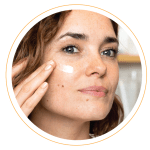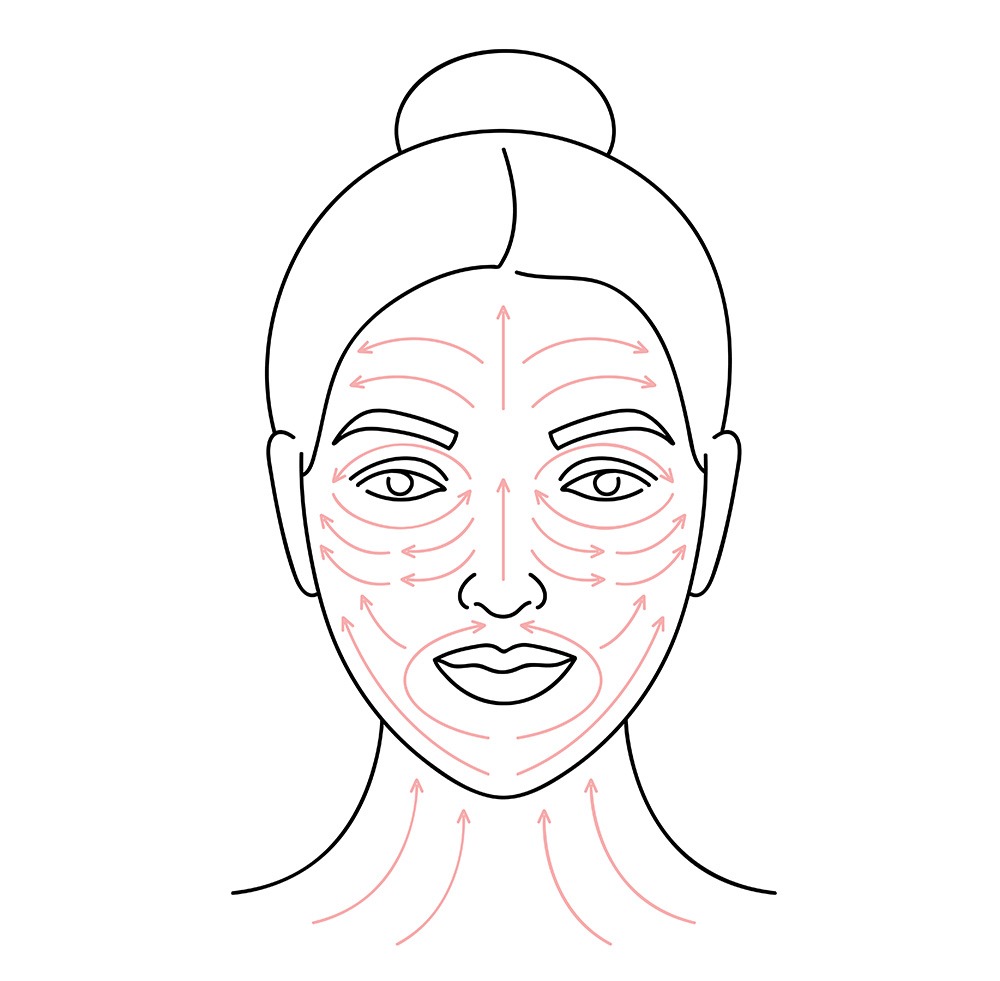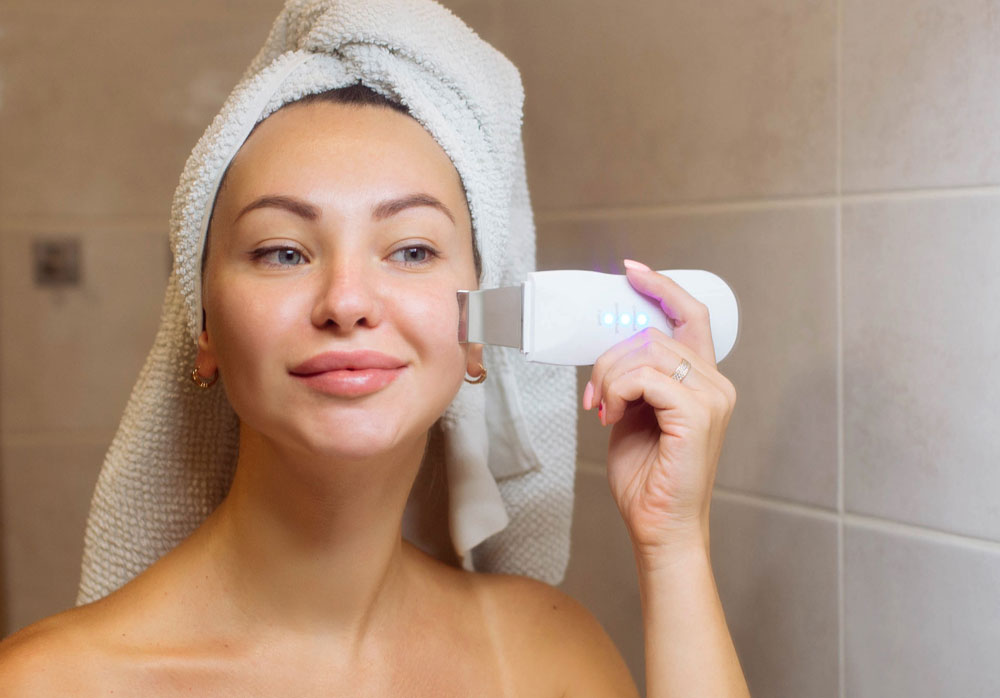Glow Big or Go Home Antioxidant Packed Smoothie
This smoothie not only contains an astounding amount of some of the best whole food sources of antioxidants but tastes like a decadent dessert. (Go on, have it for breakfast, we won’t judge).
My name is Liz, and I created your optimized skincare routine and plan. I focused on your high and medium priorities based on your DNA test. I also considered your Yudoyu quiz results which told us about your skin type and feelings about your skin. Your personalized routine includes products packed with ingredients that, with consistent use, will improve current skin quality and protect your future face. Please add lifestyle and dietary changes (outlined below) for an added boost toward happier, healthier skin!
Warmly,
Liz and The Yudoyu Team
We are here to help if you have any questions! Email us at hello@yudoyu.com.M

Combination + Sensitive + Uneven Tone + Over 40
DNA ANALYSIS EXPLANATIONS
Our lab tests 16 core and dozens of secondary genetic markers that contribute to skin protection and premature aging and can play a big role in your skin’s future well-being.
The genes tested are cataloged according to their structural, functional, and metabolic effects on the skin.
Each Skin DNA category provides 1 of 3 outcomes: High Risk, Medium or Low Risk.
How does your skin compare with the rest of the population?
Yudoyu’s partner lab SkinDNA® has established one of the world’s largest derma genetics databases with more than 2 million DNA profiles*.
Our data allows us to discover distinctive skin traits shared between groups of people.
Gene performance is either normal, impaired, or deficient. Remember, your DNA is only a part of your skin equation, and we can help you on YOUR path to healthier, happier skin.
You have a partial imbalance. Your results indicate that more collagen is breaking down and less is being produced
COLLAGEN BREAKDOWN: Deficient – This enzyme is heightened. You may break down collagen faster than it is produced and be prone to skin laxity, sagging, deeper smile lines.
COLLAGEN PROTECTION: Normal – Your body produces the antioxidant responsible for protecting collagen at an optimal level.
Your body has a reduced ability to break down glucose. Excess glucose has been linked to a number of age-related traits, amongst them – wrinkles.
WRINKLE FACTOR: Impaired – You have a less-than-optimal ability to break down glucose efficiently. This may lead to a loss in elasticity, causing fine lines around the lips and eyes, vertical lines across the cheeks, thinning skin, and rough skin texture.

You may have a higher probability of irregular pigmentation, sunburning, patches of redness, broken capillaries, brown spots, and expression lines.
GENES TESTED:
MELANIN 1: Deficient – Your body produces irregular volumes of melanin (pigment). As a result, your skin is sensitive when exposed to sunlight.
MELANIN 2: Impaired – You might experience freckling, other pigmentation spots, and/or white spots. If tan, your skin may look uneven.
PHOTO DEFENSE: Deficient – Your body is functioning less than optimal in breaking down free radicals produced from UVB rays. These “Burning” Rays are responsible for sunburns and pigmentation responses.
UV RADIATION REPAIR: Impaired – Your result suggests you may not adequately repair DNA damage caused by UVA exposure (often called the “Aging” Rays).
UV RADICAL REPAIR: Impaired – You have less than optimal ability to breakdown UV Radicals produced by sun exposure. This gene is crucial for maintaining the overall health and integrity of the skin by aiding the body in repairing UV radical damage.
You have a near optimal ability to produce essential antioxidants. Your results also suggest that you are unlikely to be sensitive to Environmental Pollutants.
GENES TESTED:
ANTIOXIDANT PRODUCTION: Normal – Your genes are great at producing the body’s most crucial antioxidants. You are less prone to the destructive effects of free radicals.
POLLUTION DEFENSE: Impaired – Your body may not break down UVB radiation, fumes, carbon, and smoke as effectively. This may cause your skin to become more sensitive to environmental pollutants.
Your body may be producing an oversupply of inflammatory proteins. You may have an increased risk for chemical sensitivity issues from exposure to pollution, perfumes and highly active products
GENES TESTED:
INFLAMMATION: Impaired – Your body may occasionally over-respond to perceived threats, irritating skin cells and causing itching, redness, skin sensitivity, hay fever, or other allergies.
XENOBIOTIC DETOX: Normal – Your body may not break down xenobiotic compounds such as cigarette smoke, exhaust fumes, air pollution, and alcohol as well as it should. Variations in this gene can create internal inflammation, causing redness, rashes, and acne.
SKIN SENSITIVITY: Impaired – You may be moderately sensitive to skin contact from perfumed products, active skincare ingredients, and general city pollution. Spot-test products with active ingredients to make sure you can tolerate them.
…based on your results.
Want to start smaller? Look for the * next to “add to cart” for your best beginner products.
Remember to use a broad-spectrum SPF daily (rain or shine). You’ll find more great choices and add-ons in your “just for YU shop.”
Here is your personalized skincare plan based on your results!
Add these easy-to-do lifestyle habits to your daily routine.
Look for these topical ingredients when shopping for skincare.
OLIVE LEAF EXTRACT (OLEUROPEIN) Reduces redness and increases vascular flow
VITAMIN E Anti-inflammatory that helps to repair the skin-barrier against outside stresses
COENZYME Ql0 Increases Collagen and Elastin
L-ASCORBIC ACID 15%+ Promotes Collagen Production
Please consult your doctor before you begin a new dietary plan.
CURCUMIN AND TURMERIC High anti-inflammatory properties
OMEGA 3 Reduces inflammatory processors
BETA-CAROTENE OR LVCOPENE Provides added protection against UV induced redness and burns
CUMIN Decreases high blood serum glucose levels and prevents formation of glycation end-products
BLUEBERRY EXTRACT Breaks the glycation cycle
VITAMIN C+E Boosts collagen production while reducing collagen breakdown
These minimally-invasive professional treatments will benefit your skin’s texture and make you glow!
Want to dig deeper? Learn about the causes and symptoms of poor skin health, and view our comprehensive list of beneficial ingredients and advice.
Selected for you!
 Lymphatic drainage is a facial massage to boost the body’s natural draining system. The face is left visibly more lifted, firm, and youthful by assisting in the movement of excess toxins, water, fats, and proteins down the lymph vessels and into the nodes!
Lymphatic drainage is a facial massage to boost the body’s natural draining system. The face is left visibly more lifted, firm, and youthful by assisting in the movement of excess toxins, water, fats, and proteins down the lymph vessels and into the nodes!
Step 1: Apply treatment oil or cleansing balm of choice. Fingers should not drag but glide easily over the skin with little to no resistance.
Step 2: Follow the directional guide demonstrated in the illustration. Using light pressure, gently massage the face upwards and outwardly. Pressure should be not unlike moving a pen across a table. The key is to lift and relax muscles! If redness occurs, lighten the pressure.
Step 3: Finish with a glass of water, herbal tea, or warm broth for added hydration.
What if I’m doing this wrong?
If you are working in upward and outward motions with light, relaxing amounts of pressure, you are certain to fight against one of the main causes of wrinkles – gravity.

This smoothie not only contains an astounding amount of some of the best whole food sources of antioxidants but tastes like a decadent dessert. (Go on, have it for breakfast, we won’t judge).
Here is one of our favorite shortcuts to having both bone broth and soup, without having to make both separately. Did we also mention how delicious it is?
Roasted bell peppers and tomatoes are two of the top ten foods highest in Vitamin C, making this hummus a super-charged source and convenient snack for any time!
This firming, nourishing, best-thing-since-sliced-bread recipe is not only delicious, but easy to make, and extremely affordable.
† Watch for the symbol: These products and ingredients may contain high amounts of iodine. See the iodine warning below before using.
Thyroid Disease Warnings: If you, or someone in your family, are prone to or suspect you might have thyroid disease, we recommend avoiding the use of all of the following ingredients in both skincare and supplements unless otherwise instructed by your healthcare provider:
These ingredients are enormously high in iodine content, a proven, major thyroid disruptor. When applied topically, they can enter the bloodstream.
Resources: https://www.drchristianson.com/the-iodine-controversy/